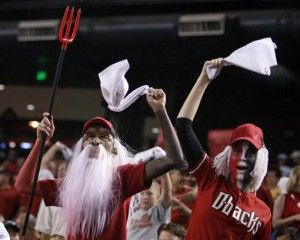MLB Playoffs 2014: After Giants, Nats Go 18 Innings, Speeding Up The Game In 2015 Makes Even More Sense

Major League Baseball appears to be coming to grips with North America’s ever-diminishing attention span. Baseball commissioner Bud Selig recently addressed the prospect of speeding up the pace of the game, with possible rule changes that would prevent the sometimes-exhausting number of stoppages.
"It's a complicated subject," Selig said in a September press conference. "I created a committee because I wanted experience in this area. They know how I feel. The game has never been more popular, drawing record attendance, record revenues. But I do think that we have an obligation to look at some things. I think there are some things we can do that won't disturb the game and its history and tradition, but will maybe do things a little better."
Selig is probably on to something. Even the bulk of baseball purists can probably agree that the game doesn’t need to have so many breaks in action. The league office can encourage a culture of baseball that would appeal to more fans by increasing the flow.
There is also some financial logic behind the idea that a faster game would spark higher television ratings by appealing to fans who want more action, and less time seeing a pitcher step off the mound for no real reason. While owners have enjoyed a financial windfall due to lucrative television contracts, there remains money that seems to be left on the table by not appealing to a broader demographic. Baseball also may need to think about how they are going to get people to continue to watch.
Ratings are likely hurt by long games, and a three-hour game that occurs 162 times in a team’s regular season probably isn’t helping to lure younger fans or those who appreciate, say, soccer, a sport played over 90 minutes, which is usually completed after two hours when stoppages and halftime are factored. When it comes to attracting younger viewers, baseball isn’t just competing with other sports, but also with video games, movies, and the Internet – all mediums that can give instant gratification to the user and don’t require sitting still for three hours.
America’s pastime continues to grow in Asia and Latin America, but Europe remains a tough sell. Meanwhile, Americans who feel detached from a slow game, compared to the action of NFL and the NBA, may feel that late games are not worth the investment of time since they can run into very late hours.
In a sport without a clock, the length of a baseball game can really drag, and that hurts selling the overall product. In the 2014 season, the average length of an MLB game was three hours and 13 minutes. According to Baseball Prospectus, the length of games has seen an uptick since 2010, when it was 2.91 hours, followed by 2.94 hours in 2011, 3.00 in 2012, and 3.07 in 2013. Some experts would point to the trend to replace starting pitchers earlier in a game to preserve their arms is the main contributing factor to longer games, but the stats say otherwise. The Elias Sports Bureau said that there were 13,924 pitching changes in 2010, 13,892 in 2011, 14,522 in 2012, and 14,334 in 2013, and 14,461 in 2014. (The 2012 season had more pitching changes than 2014, but the game was still shorter.)
There may not be much baseball can do to make a firm dent. There is no way to discourage hitters from consistently fouling pitches off with two strikes, or limit the number of a pitcher’s pick-off throws. There is also no tangible way to prevent games from going into extra innings, much like the case of Saturday’s San Francisco Giants – Washington Nationals Game 2 marathon game that went 18 innings and lasted over six hours.
Yet, there are a few ideas that could help move the game along. The commissioner’s office should fine pitchers, hitters, and coaches for excessive time wasting. They can only allow the manager to visit the mound for pitching changes, instead of allowing the pitching coach to talk to a pitcher. Baseball can limit a catcher’s visits to the mound to one an inning.
Baseball can also adjust Rule 8.04, which states, “When the bases are unoccupied, the pitcher shall deliver the ball to the batter within 12 seconds after he receives the ball.” The time could be reduced to eight seconds, instead.
Those changes might not do enough to make a major impact, but it would be a step in the right direction. The result might be more overall interest in the game, and wouldn't that be a great for baseball?
© Copyright IBTimes 2024. All rights reserved.












